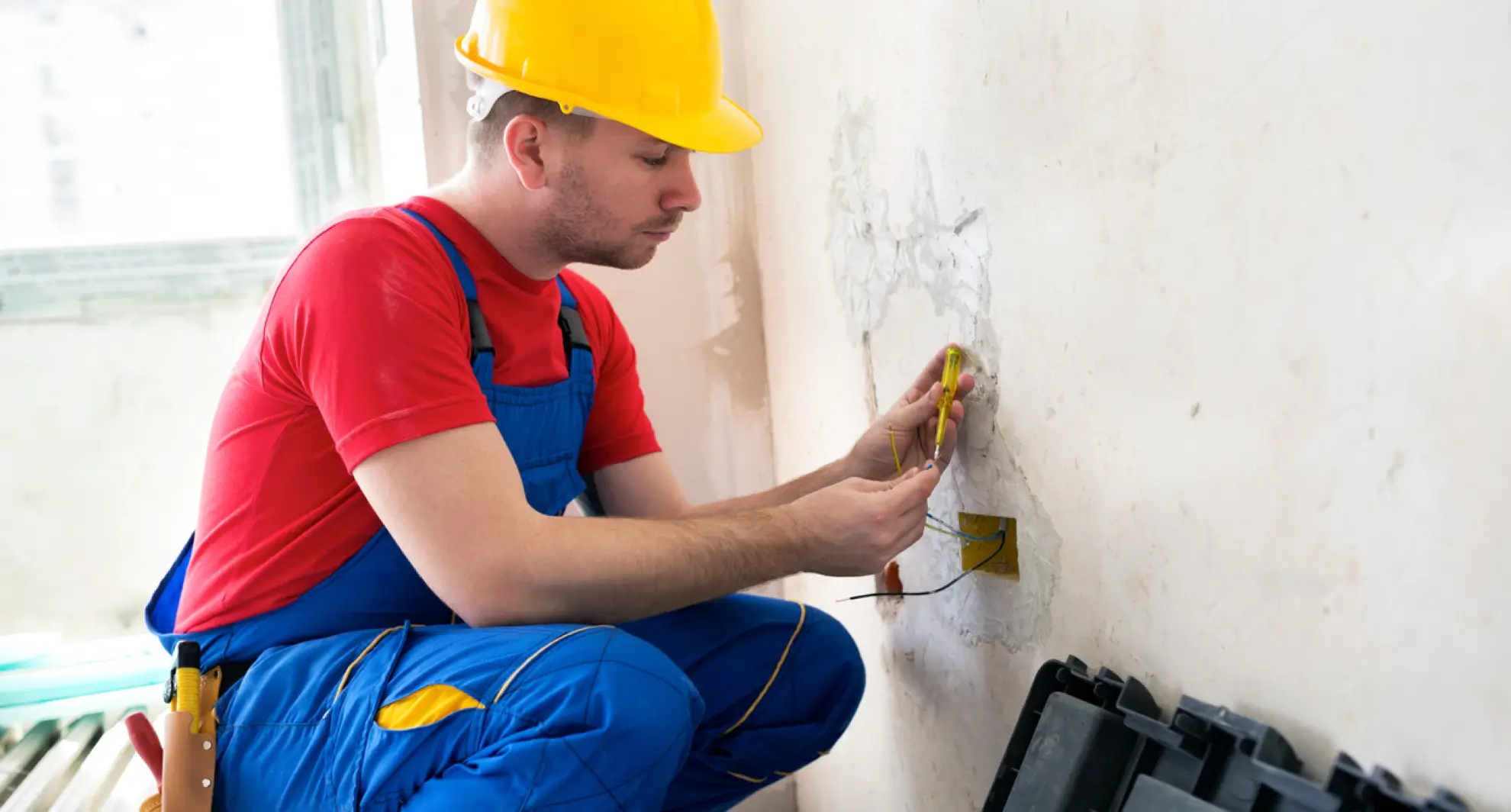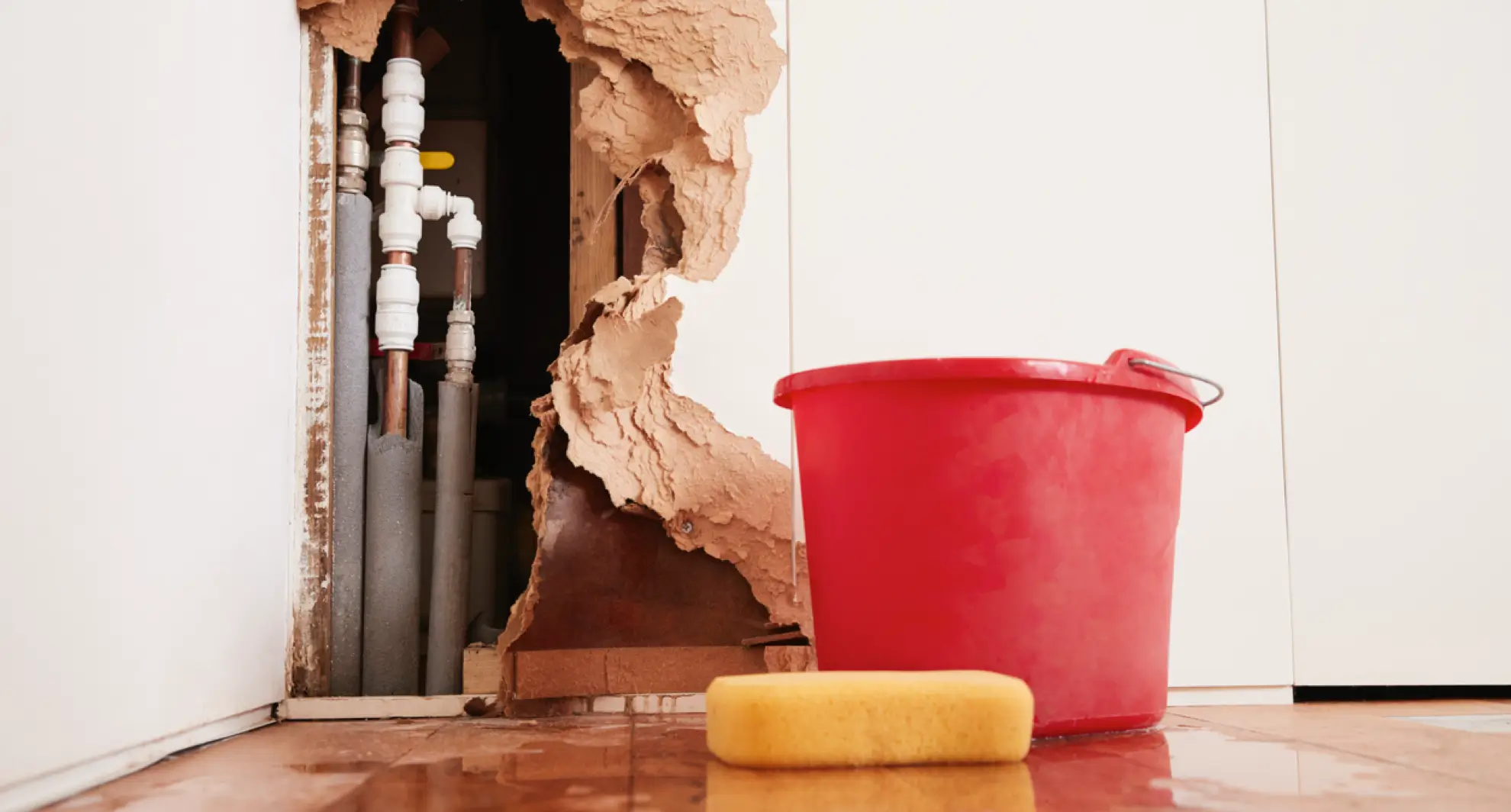
Mr. Electric explains why intermittent buzzing in walls is often a signal of an electrical issue and how to address it.
|
Is there a buzzing sound in your wall that's driving you crazy? A vibrating noise in the wall can be an early warning sign of deeper electrical issues hiding behind the scenes. Problems with wiring, switches, or outlets could be to blame, and they often get worse over time.
If you hear a vibrating, humming noise in your walls, those sounds deserve immediate attention and a professional should take a closer look before small problems turn into serious hazards. Before we begin: If you are concerned for your safety due to electrical issues, call Mr. Electric® now for assistance.
Potential Causes of the Buzzing Sound in Your Wall
The first step to ending the buzzing—and regaining your sanity—is figuring out where the noise is coming from. If you're not sure where to start, here are some tips to help you narrow down the cause of buzzing sounds in a wall:
Electrical causes
These can include:
- Loose wiring at outlets or switches: Loose or degraded wire connections inside a wall outlet or switch are among the most common reasons for a buzzing noise in the wall. This isn't just an annoyance. It can lead to overheating or arcing, raising the question, "Is an electrical buzzing sound in a wall dangerous?" (Short answer: yes.)
- Faulty devices or old installations: Aging outlets, switches, and even old wiring can develop a constant or intermittent hum over time, especially under load.
- Issues near the electric meter: If the buzzing wall is near where your electric meter is mounted outside, the meter or its connection to the home may be damaged or deteriorating, causing a steady vibration that travels through the structure.
HVAC system issues
Your HVAC system might be at fault because of:
- Vents and air pressure: If there's a supply or return air vent nearby, partially closed or loose vent grilles can cause a noticeable vibrating noise in the wall as air pushes through at high speed.
- Ceiling fans: A ceiling fan that's slightly off-balance or operating on a loose mount can send a subtle hum or vibration through nearby walls. Turn the fan off to rule it out.
Lighting problems
Traditional fluorescent bulbs and ballasts are famous for creating a low-level hum. If you have older fluorescent lighting near the buzzing area, try switching it off temporarily to check if the noise stops.
Plumbing and water movement
In some cases, pipes inside the walls can vibrate, especially when valves are partially closed or if there's high water pressure. This typically causes a tapping or pulsing sound rather than a steady buzz, but it's still worth considering.
Pests nesting in walls
Believe it or not, buzzing in a wall could also be the sign of an unwanted hive. Bees, wasps, or even rodents nesting inside wall cavities can produce low-level buzzing or scratching sounds that seem electrical at first.
Whatever the cause, it's important to act quickly. Electrical problems are the most urgent to address, but even non-electrical issues can cause property damage over time if ignored.

Simple Ways to Troubleshoot Noises in Your Walls
While some causes of a buzzing sound in a wall require professional tools to diagnose, there are a few steps you can take to gather useful clues before calling in help. Careful observation can narrow down whether you’re dealing with an electrical issue, a mechanical one, or something else entirely.
Check nearby electrical fixtures
Start by paying attention to what’s around the noise. Is there an outlet, light switch, ceiling fixture, or appliance nearby? If the buzzing seems loudest near electrical points, you may be dealing with an electrical buzzing sound in the wall, which can signal a wiring issue or failing device.
Note whether the sound is intermittent or continuous
If the sound comes and goes, especially when lights, appliances, or HVAC systems kick on, it may be linked to load changes on your circuits.
A steady, nonstop buzzing noise in a wall can indicate a constant electrical problem, such as loose wiring or a faulty connection that’s under stress 24/7.
Look for symptoms in other systems
Think about what else you’re noticing around the house. Are there lights that flicker? Outlets that feel warm to the touch? HVAC vents rattling when the system runs? Any of these issues could be tied to the vibrating noise in the wall and help your electrician pinpoint the cause faster.
Be mindful of new additions or recent changes
If the buzzing started after installing new lighting, appliances, or electronics, mention it when you call for service. New installations can sometimes reveal hidden issues in older wiring or overload existing circuits.
Careful observation helps. Just remember: even if you gather good information, buzzing in a wall usually points to something that needs professional attention. An electrician can safely dig deeper and fix the root cause.
Is an Electrical Buzzing Sound in the Wall Dangerous?
If you hear an electrical buzzing sound in a wall, it's a warning. Buzzing noises often point to loose wiring, overloaded circuits, or faulty devices, all of which can escalate quickly if left untreated.
Here's why it's a serious problem:
- Loose connections can overheat: When wires aren't securely connected, they create electrical resistance. Resistance generates heat, and that heat can melt insulation, damage outlets, or ignite nearby materials.
- Arcing can spark fires: If the connection is loose enough to allow electricity to jump (arc) between gaps, it can produce tiny sparks you'll never see but that can easily ignite drywall, wood framing, or insulation behind your walls.
- Circuit overloads strain your system: Buzzing in a wall sometimes means a circuit is handling more power than it was designed for. Overloaded circuits overheat, trip breakers, and, in worst-case scenarios, cause major electrical failures.
Buzzing is often the first sign of a hidden problem. Electrical issues don't always cause visible damage right away. That low, persistent hum could be your only clue before more serious symptoms—like scorch marks, burning smells, or full outages—appear.
If you notice a buzzing sound in a wall, it's better to act fast. Ignoring it could put your safety and your home at risk. An electrician can identify the cause and fix the problem before it turns into something far worse.

Why Electrical Repairs Are Never a DIY Job
Once you've identified a buzzing sound in a wall, it's tempting to think a quick fix will solve it. But when it comes to electrical work, even small mistakes can have serious consequences.
Working with live electricity is dangerous
Electrical panels, outlets, and wiring carry enough voltage to cause severe injury or worse. Even if you turn off a breaker, there's always a risk of residual current or misidentified circuits, especially in older homes. It's not worth the gamble.
Surface problems can hide deeper issues
A vibrating noise in the wall might seem simple, but it often points to layered problems: overloaded circuits, aging wires, or failing connections deeper inside your walls. Without the right tools and expertise, it's easy to miss the real cause and leave dangerous conditions behind.
DIY repairs can void insurance or warranties
Some home insurance policies require that electrical work be completed by a professional. If a DIY repair leads to damage, you could be left footing the bill for repairs and anything damaged by a fire or system failure.
Even if you're handy around the house, electrical buzzing and humming noises are not something to tackle lightly. The risks are real, and the smartest move is always to bring in a professional.
A Professional Fixes It Right the First Time
An electrician doesn't just patch the obvious issue. They troubleshoot the entire system to make sure there are no hidden dangers. When you call about a buzzing sound in a wall, the first thing your electrician will do is conduct a careful inspection. They'll check outlets, switches, and nearby fixtures, looking for signs of loose wiring, faulty connections, overloaded circuits, or aging components that could cause the vibrating noise in the wall.
They'll also test the electrical load and grounding to make sure your system can safely handle the demands placed on it. If the noise is tied to a faulty device, hidden wiring issue, or broader circuit problem, they'll diagnose it properly. Every repair will meet the National Electrical Code and local regulations, keeping your home safe and your system running smoothly.
Get That Buzzing Noise Checked Out by Mr. Electric
When it comes to a buzzing sound in a wall, waiting it out isn't worth the risk. Let the professionals at Mr. Electric track it down, fix it safely, and give you real peace of mind. The Neighborly Done Right Promise® backs every job we do, so you know you'll be happy with our work.
This article is intended for general guidance only and is not applicable to every situation. You are responsible for determining the proper course of action for your property and situation. Mr. Electric is not responsible for any damages that occur as a result of advice and/or guidance derived from its blog content.
Some Mr. Electric services vary by location. Contact your local Mr. Electric franchise for more information.
FAQs About Buzzing in Walls
The safety of you, your family, and home are the top priority of every Mr. Electric service professional. Our safety-first commitment to solving your electrical issues includes a meticulous attention to detail on every job. Our commitment also includes using our years of experience to answer your questions. Below are answers to some of the most frequently asked questions about buzzing in walls.
Can electrical buzzing sounds stop on their own?
Sometimes, a buzzing sound might seem to stop temporarily if the load on the circuit decreases (for example, when fewer devices are running). However, even if the noise fades, the underlying issue, such as a faulty connection or loose wiring, usually remains. Temporary silence doesn’t mean the problem is resolved; it still requires a professional inspection.
What does a buzzing outlet mean?
A buzzing sound coming from an outlet often means the wiring inside is loose, corroded, or overloaded. It could also indicate a failing outlet. All of these conditions are fire risks and should be checked immediately by an electrician.
Can pests chewing on wires cause buzzing sounds?
Yes. Mice and rats can gnaw on wiring inside your walls, causing exposed wires that may spark or buzz. In addition to electrical hazards, pest damage can lead to expensive repairs and health risks. If pests are suspected, consult a pest control professional and an electrician.

